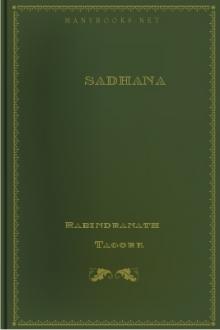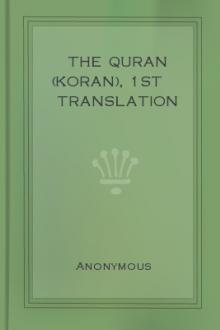Genre Religion. Page - 9

he Beth-horon Route--The Amorites defeated but not surrounded--King David as a Strategist. THE MIRACLE--The Noon-day Heat, the great Hindrance to the Israelites--Joshua desired the Heat to be tempered--The Sun made to "be silent"--The Hailstorm--The March to Makkedah--A Full Day's March in the Afternoon--"The Miracle" not a Poetic Hyperbole--Exact Accord of the Poem and the Prose Chronicle--The Record made at the Time--Their March, the Israelites' Measure of Time 351
CHAPTER II.
THE DIAL OF AHAZ
The Narrative--Suggested Explanations--The "Dial of Ahaz," probably a Staircase--Probable History and Position of the Staircase--Significance of the Sign 385
CHAPTER III.
THE STAR OF BETHLEHEM
The Narrative--No Astronomical Details given--Purpose of the Scripture Narrative--Kepler's suggested Identification of the Star--The New Star of 1572--Legend of

linkwith the infinite, judges his activity by its movement and not bythe repose of perfection--the repose which is in the starryheavens, in the ever-flowing rhythmic dance of creation.
The first invasion of India has its exact parallel in theinvasion of America by the European settlers. They also wereconfronted with primeval forests and a fierce struggle withaboriginal races. But this struggle between man and man, and manand nature lasted till the very end; they never came to anyterms. In India the forests which were the habitation of thebarbarians became the sanctuary of sages, but in America thesegreat living cathedrals of nature had no deeper significance toman. The brought wealth and power to him, and perhaps at timesthey ministered to his enjoyment of beauty, and inspired asolitary poet. They never acquired a sacred association in thehearts of men as the site of some great spiritual reconcilementwhere man's soul has its meeting-place with the soul of theworld.
I do not for a mo

sed to me that I should take away the whole cauldron, with its contents, assuring me that I had polluted the milk it contained! "I only want a glass of milk and not a kettle of it," I said to him.
"According to our laws," the merchant answered me, "if any one not belonging to our caste has fixed his eyes for a long time upon one of our cooking utensils, we have to wash that article thoroughly, and throw away the food it contains. You have polluted my milk and no one will drink any more of it, for not only were you not contented with fixing your eyes upon it, but you have even pointed to it with your finger."
I had indeed a long time examined his merchandise, to make sure that it was really milk, and had pointed with my finger, to the merchant, from which side I wished the milk poured out. Full of respect for the laws and customs of foreign peoples, I paid, without dispute, a rupee, the price of all the milk, which was poured in the street, though I had taken only one glass of it. This was a less

p the strong pinions of love, and clothe religion in human forms. Whatever mate- 5:1 rializes worship hinders man's spiritual growth and keeps him from demonstrating his power over error. Sorrow and reformation
5:3 Sorrow for wrong-doing is but one step towards reform and the very easiest step. The next and great step re- quired by wisdom is the test of our sincerity, 5:6 - namely, reformation. To this end we are placed under the stress of circumstances. Temptation bids us repeat the offence, and woe comes in return for 5:9 what is done. So it will ever be, till we learn that there is no discount in the law of justice and that we must pay "the uttermost farthing." The measure ye mete "shall 5:12 be measured to you again," and it will be full "and run- ning over." Saints and sinners get their full award, but not always 5:15 in this world. The followers of Christ drank his cup. Ingratitude and persecution filled it to the brim; but God pours the riches of His love into the understanding and 5:18 affectio

ON THE ORPHANS--LAND FOR A NEW BUILDING PURCHASED--"BUT ONE LIFE TO SPEND FOR GOD"--"SCATTERING, YET INCREASING"--A MEMORABLE YEAR--THE GERM OF THE IRISH REVIVAL--LETTER FROM AN ORPHAN--THE FRUIT OF SIX MONTHS' PRAYER--THE RESULTS OF THE WORK--REVIVAL AMONG THE ORPHANS 446
APPENDIX 473
INTRODUCTION.
What is meant by the prayer of faith? is a question which is beginning to arrest, in an unusual degree, the attention of Christians. What is the significance of the passages both in the New Testament and the Old which refer to it? What is the limit within which they may be safely received as a ground of practical reliance? Were these promises limited to prophetical or apostolical times; or have they been left as a legacy to all believers until the end shall come?
Somehow or other, these questions are seldom discussed either from the pulpit or the press. I do not remember to have heard any of them distinctly treated of in a sermon. I do not know of any work in which this subject is

Blue Screen of Death" that appears on Windows users' monitors when something goes irretrievably wrong is the butt of many jokes.
Linux users also bragged about the quality of their desktop interface. Most of the uninitiated thought of Linux as a hacker's system built for nerds. Yet recently two very good operating shells called GNOME and KDE had taken hold. Both offered the user an environment that looked just like Windows but was better. Linux hackers started bragging that they were able to equip their girlfriends, mothers, and friends with Linux boxes without grief. Some people with little computer experience were adopting Linux with little trouble.
Building websites and supercomputers is not an easy task, and it is often done in back rooms out of the sight of most people. When people began realizing that the free software hippies had slowly managed to take over a large chunk of the web server and supercomputing world, they realized that perhaps Microsoft's claim was viable. Web servers and su

mind is compelled to believe that theremust have been an Original One, that can have had no cause. This is ahard task for the Intellect, but in time it comes to see just where thetrouble lies, and ceases to interpose objections to the voice of thehigher regions of the self.
And, the Intellect experiences a similar difficulty when it tries tothink of an Eternal--a That which is above and outside of Time. We seeTime in operation everywhere, and take it for granted that Time is areality--an actual thing. But this is a mistake of the senses. There isno such thing as Time, in reality. Time exists solely in our minds. Itis merely a form of perception by which we express our consciousness ofthe Change in Things.
We cannot think of Time except in connection with a succession ofchanges of things in our consciousness--either things of the outerworld, or the passing of thought-things through our mind. A day ismerely the consciousness of the passing of the sun--an hour or minutemerely the subdivision

up in astonishment, and as Mrs MacNab ran down the street to meet them with lean hands similarly spread, and her fierce face in shadow, she was a little like a demon herself. The doctor and the priest made scant reply to her shrill reiterations of her daughter's story, with more disturbing details of her own, to the divided vows of vengeance against Mr Glass for murdering, and against Mr Todhunter for being murdered, or against the latter for having dared to want to marry her daughter, and for not having lived to do it. They passed through the narrow passage in the front of the house until they came to the lodger's door at the back, and there Dr Hood, with the trick of an old detective, put his shoulder sharply to the panel and burst in the door.
It opened on a scene of silent catastrophe. No one seeing it, even for a flash, could doubt that the room had been the theatre of some thrilling collision between two, or perhaps more, persons. Playing-cards lay littered across the table or fluttered about the

. The relative value of any given system of religious thought must depend on the amount of truth which it embodies as well as on the ethical standard which its adherents are bidden to follow. Another important test is the degree of originality that is to be assigned to it, for it can manifestly only claim credit for that which is new in it, not for that which it borrowed from other systems.
With regard to the first-named criterion, there is a growing opinion among students of religious history that Muhammed may in a real sense be regarded as a prophet of certain truths, though by no means of truth in the absolute meaning of the term. The shortcomings of the moral teaching contained in the Koran are striking enough if judged from the highest ethical standpoint with which we are acquainted; but a much more favourable view is arrived at if a comparison is made between the ethics of the Koran and the moral tenets of Arabian and other forms of heathenism which it supplanted.
The method followed by Mu

e attempting to live under conditions of dire poverty, and the island, with its population of 1,000, would now offer an excellent example, not of overpopulation, but of human selfishness.
My contentions are that poverty is neither solely nor indeed generally related to economic pressure on the soil; that there are many causes of poverty apart altogether from overpopulation; and that in reality overpopulation does not exist in those countries where Malthusians claim to find proofs of social misery due to a high birthrate.
If overpopulation in the economic sense occurred in a closed country, whose inhabitants were either unable or unwilling to send out colonies, it is obvious that general poverty and misery would result. This might happen in small islands, but it is of greater interest to know what does happen.
Section 5. NO EVIDENCE OF OVERPOPULATION
In a closed country, producing all its own necessities of life and incapable of expansion, a high birth-rate would eventually